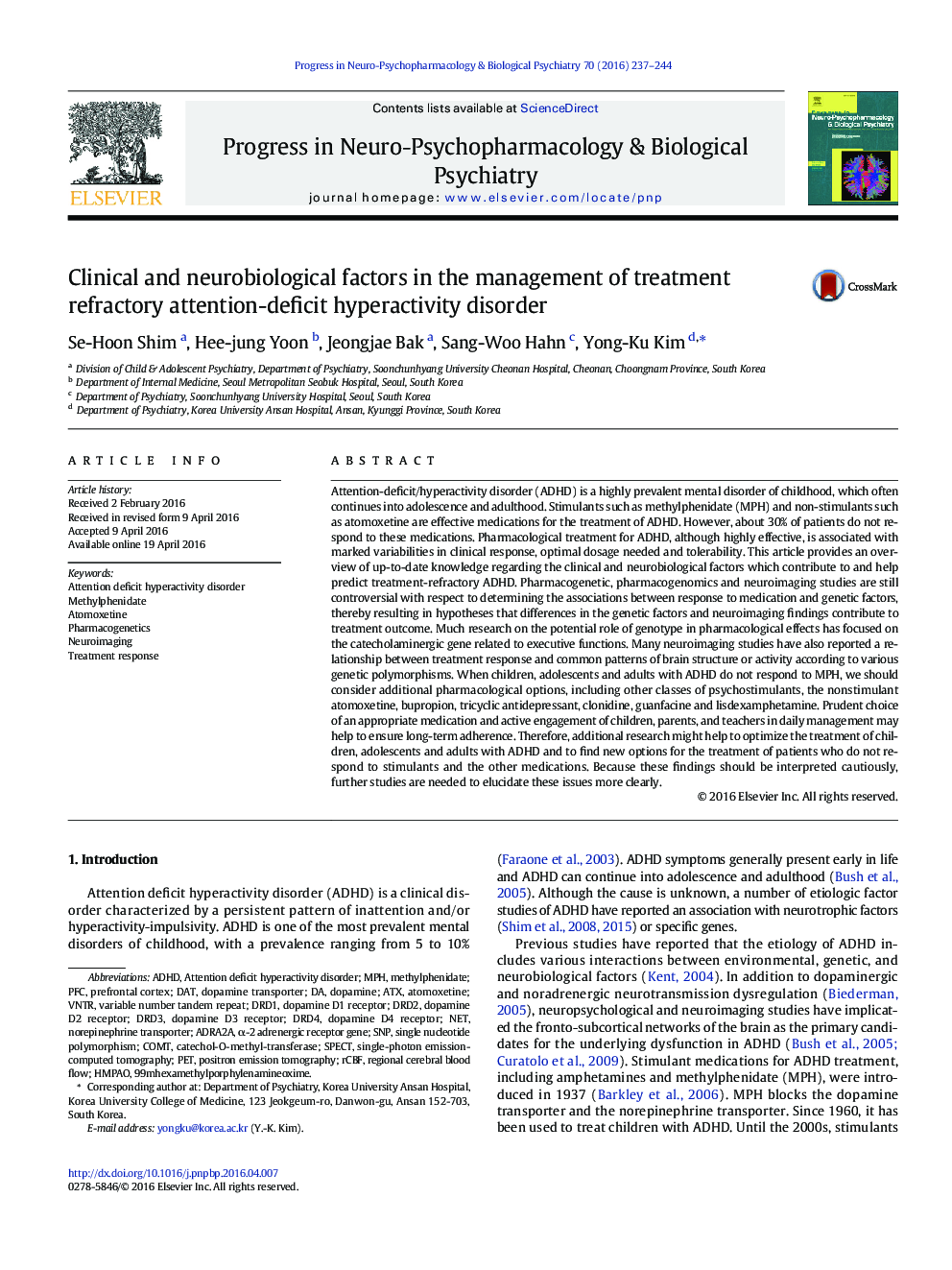| کد مقاله | کد نشریه | سال انتشار | مقاله انگلیسی | نسخه تمام متن |
|---|---|---|---|---|
| 2564676 | 1561024 | 2016 | 8 صفحه PDF | دانلود رایگان |
Attention-deficit/hyperactivity disorder (ADHD) is a highly prevalent mental disorder of childhood, which often continues into adolescence and adulthood. Stimulants such as methylphenidate (MPH) and non-stimulants such as atomoxetine are effective medications for the treatment of ADHD. However, about 30% of patients do not respond to these medications. Pharmacological treatment for ADHD, although highly effective, is associated with marked variabilities in clinical response, optimal dosage needed and tolerability. This article provides an overview of up-to-date knowledge regarding the clinical and neurobiological factors which contribute to and help predict treatment-refractory ADHD. Pharmacogenetic, pharmacogenomics and neuroimaging studies are still controversial with respect to determining the associations between response to medication and genetic factors, thereby resulting in hypotheses that differences in the genetic factors and neuroimaging findings contribute to treatment outcome. Much research on the potential role of genotype in pharmacological effects has focused on the catecholaminergic gene related to executive functions. Many neuroimaging studies have also reported a relationship between treatment response and common patterns of brain structure or activity according to various genetic polymorphisms. When children, adolescents and adults with ADHD do not respond to MPH, we should consider additional pharmacological options, including other classes of psychostimulants, the nonstimulant atomoxetine, bupropion, tricyclic antidepressant, clonidine, guanfacine and lisdexamphetamine. Prudent choice of an appropriate medication and active engagement of children, parents, and teachers in daily management may help to ensure long-term adherence. Therefore, additional research might help to optimize the treatment of children, adolescents and adults with ADHD and to find new options for the treatment of patients who do not respond to stimulants and the other medications. Because these findings should be interpreted cautiously, further studies are needed to elucidate these issues more clearly.
Journal: Progress in Neuro-Psychopharmacology and Biological Psychiatry - Volume 70, 3 October 2016, Pages 237–244
